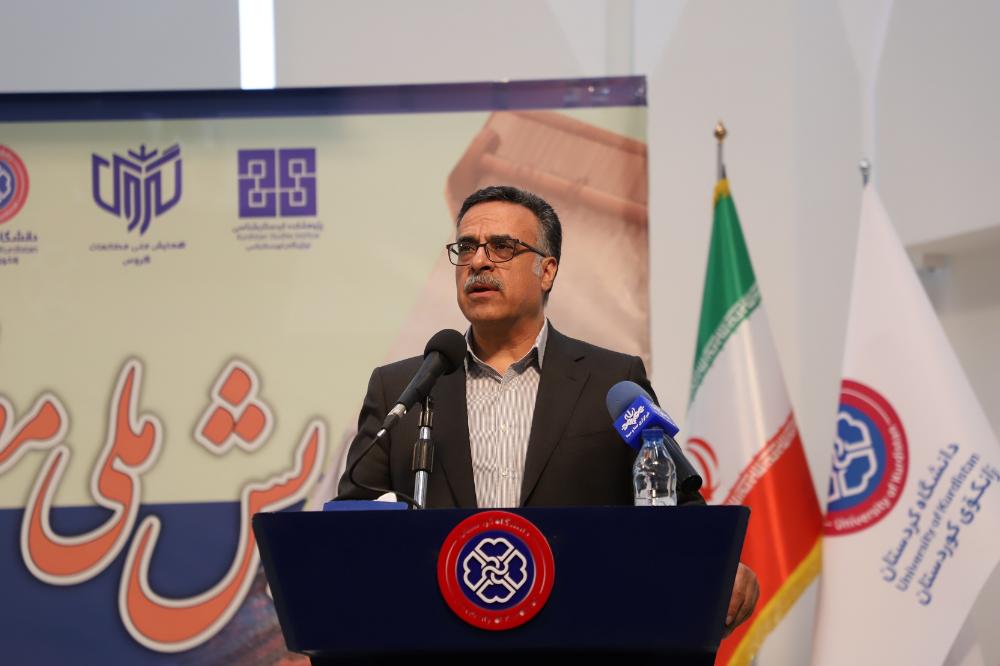At the National Conference on Garous Studies held at the University of Kurdistan, the Advisor to the Minister of Science, emphasizing Kurdistan's historical and civilizational background, called for the formulation of targeted programs to address drought, migration, and managerial imbalances in the province's development trajectory.
Advisor to Minister of Science Stresses Need for Rethinking Kurdistan's Development Path

According to the Public Relations Office of the University of Kurdistan, Dr. Seyed Ahmadreza Khezri, Director-General of the Ministerial Office and Advisor to the Minister of Science, Research, and Technology, highlighted the historical and cultural capacities of Kurdistan and stressed the need to revise the province's development path and confront challenges such as drought, migration, and managerial imbalances.
Speaking at the conference, which was held to honor the history, art, and cultural heritage of Garous, the minister's advisor stated, "Garous is not merely a geographical name but a civilizational and cultural concept born from the history of the Zagros and rooted in Iranian identity."
Referring to Kurdistan's historical legacy from the Median to the Sasanian eras, he added, "Despite its valuable historical standing, this land today faces economic pressures, forced migration, cultural and linguistic crises, and dwindling water resources."
Dr. Khezri emphasized, "To overcome this situation, we must move toward comprehensive planning, support for small and medium-sized enterprises, development of mechanized agriculture, and prevention of the sale of raw strategic products to ensure greater value-added and profit for producers."
He also pointed to the necessity of developing communication infrastructure, including railways and border markets, stating, "This infrastructure can create new job opportunities and prevent uncontrolled migration."
The advisor concluded by stressing the importance of preserving the region's cultural and historical identity, the national registration of the Bijari language, and strengthening solidarity while avoiding politicization, adding, "Through a rational and pragmatic approach, sustainable development and the welfare of the people of Kurdistan can be achieved."


















